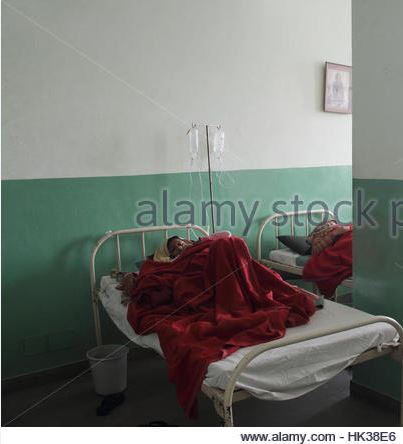(Trigger Warning: Below is the account of one woman’s experience with FGC. We thank her for being brave and sharing her story with us)
By: Jamila Mandsour
Age: 25
Country of Residence: Kuwait
Country where Khatna took place: Banswara in Rajasthan, India
That day, I was taken to the hospital to see my newborn cousin. Although the mom, my aunt, and her baby boy were already discharged, my mom told me they were still there. I was five and so very excited to see the baby. My excitement crashed when I was thrown into a dark room and a nurse put me on a stretcher. I screamed and was slapped on my face. My voice was silenced. After ten minutes, I came out of the room wounded and in tears.
I had no idea what happened to me in those ten minutes because I fainted. I was partly aware that a knife had been held towards my genitals, but a five-year-old does not have the guts to ask the adults why she was thrown into a dark room. My brain did not have the ability to understand that my legs were spread to cut some skin from my clitoris. After coming out of the room, I was not aware of that injury and could not understand why I was bleeding.
Since childhood, I have been an active person, always running from here to there. But on that day, after leaving the hospital, I was totally exhausted from the crying and yelling because of the pain that knife had caused me. I went home and slept, not waking until the evening. Upon awaking, I saw that blood on my mattress and finally, I asked my aunties (my mother’s sisters) why I bled. I don’t remember any of them answering me. They told me not to wear my underwear for the rest of the day. Even at that young age, I felt awkward about going without my underwear. I wanted to rise from my bed, to run around and do my daily somersaults, but I could not because of my injuries. For the next few days, I couldn’t even walk properly.
That day left a mark on my memory forever. After a few days, I returned to my regular daily routine. Not thinking about that day until eight years had passed and my sister suffered through the same thing I did. I was thirteen then, and I can recall her sad face, filled with pain, asking me the question, “Why was I cut?”
What could I say to her? I had no answer to give her and it broke my heart. For the second time in my life, I went through the same emotional pain and felt helpless, keeping mum on the subject. An invisible hand had slapped me once again with the reality of what I and my sister had undergone. Even now at this moment, while I write this story of mine, chills run down my spine.
In my 20s, for the first time in my life, I really tried to find answers to my question of why we were cut. I got no answers. One thing I was sure about: it shouldn’t have happened to me in the manner that it did, even if the religious authorities had deemed it valid.
Even today, not many want to talk about this hideous act, but every pain has a scream and on some days the pain reaches out and my scream is loud. In time I did get answers, but I still wonder why the community practices this ritual when there is nothing reasonable about it. Out of a hundred women, I think ninety-eight would either not know of any scientific or religious reason to perform it, or would say they do not want to discuss it with others. If some women are adamant about being silent and feel guilty about speaking about khatna, then I wonder why they make sure their kids undergo it?
I don’t know how, to sum up this article. One thing I know is that khatna is painful, it is harsh, torturing, shattering, and heart-breaking. It affects the sexuality of women and causes emotional and mental suffering (this is true in my case).
While writing this piece, I couldn’t control the tears flowing down my face, as it expressed my pain. I request all of you who read this story of mine, please stop practicing khatna. One piece of skin should not decide the character of your daughter. Please be sensible about what happens to your baby girl.

